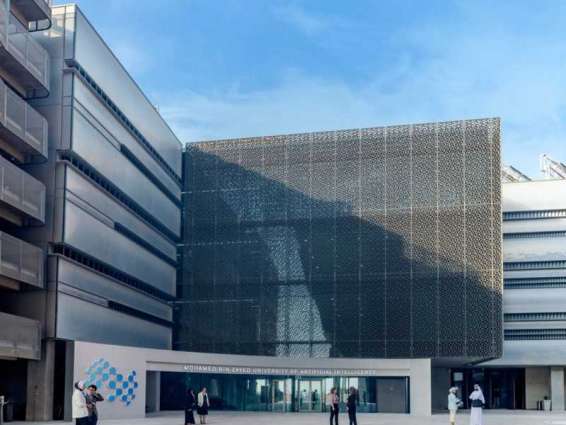ABU DHABI, (Pakistan Point News - 25th Apr, 2023) The Mohamed bin Zayed University for Artificial Intelligence (MBZUAI) is implementing many research projects in healthcare to address various challenges in the sector using Artificial Intelligence (AI) and improving the accuracy and efficiency of healthcare services for the benefit of patients and society.
In conjunction with World Malaria Day, which falls on 25th April, MBZUAI is keen to play an active role as part of the global efforts to address this issue.
As part of the cooperation between the “Reaching the Last Mile” initiative and the US-based non-profit “Malaria No More” and their implementation of the "Forecasting Healthy Futures" initiative, the new Institute for Malaria and Climate Solutions (IMACS) – a global institute with the mission to combat malaria in the face of climate change and weather volatility − has been launched.
With the university's participation in this initiative, MBZUAI Associate Professor of Computer Vision, Mohammad Yaqub, is leading efforts to develop a mobile application to diagnose malaria from microscopy scans to reduce the spread of malaria through faster and more accurate diagnosis.
According to MBZUAI, diagnosis and assessment of malaria is typically performed by a clinician who reviews scans taken from blood samples. Unfortunately, there is a huge shortage of skilled clinicians to interpret the increasing number of malaria microscopy scans. The current interventions for malaria are not sustainable and this has led to a surge in the disease. Sustainable solutions to help tackle malaria diagnosis and assessment are vital to continuing mitigation and eradication efforts.
Health is one of MBZUAI’s key research pillars and it is designed to produce maximum impact, for stakeholders, and for humanity at large. Examples include using disruptive technologies to make drug development faster and cheaper, and using AI to make personalised medicines for improved treatment for individuals.
AI has the potential to significantly contribute to supporting and shaping the healthcare sector in several ways. AI research and tools are a key example, as they contribute to the drug design for pharmaceutical solutions to treat malaria and other diseases.
Medical imaging is another representation, AI algorithms can analyse large amounts of medical data, including medical images and genetic information to assist healthcare professionals in making accurate and timely diagnoses. In 2022, MBZUAI joined forces with SEHA to develop AI algorithms that can predict if someone will have a heart attack months before it takes place – a breakthrough is expected to save countless lives.
With the proper research and resources, AI can lead to earlier detection of diseases, more personalised treatment plans, and ultimately better patient outcomes.
In the healthcare sector, MBZUAI has initiated several research projects that aim to address various challenges and opportunities using AI. In addition to improving the accuracy, efficiency, and effectiveness of healthcare services, ultimately benefiting patients and society.
Below are some of the most prominent research initiatives of MBZUAI in the healthcare sector:
• Bio Medical Image Analysis (BioMedIA) lab, which focuses on investigating real-world healthcare problems using AI. The lab is led by Professor Yaqub, where he and his colleagues use AI to develop solutions in disciplines including cardiology, pulmonology, and oncology. The lab also often collaborates with hospitals, industry, and other academic labs.
• Development of personalised medication: MBZUAI is working on developing personalised medicine approaches that take into account an individual's genetic, environmental, and lifestyle factors. Earlier this year Quris-AI MBZUAI signed an MoU aimed at the development of a world-class Bio-AI centre in Abu Dhabi that will support the development of personalised medications, tailored specifically to the diversified population of the MENA region. The research derived from the Bio-AI centre will be able to significantly improve patient outcomes and experiences while efficiently managing treatment costs specifically for the region and the diverse ethnic and genetic groups.
• Brain health: Infinite Brain Technologies (IBT) and MBZUAI entered a five-year research and development agreement. The two industry thought leaders will form a joint research lab to develop precise, personalised Digital Therapeutics (DTx) for human brain health by optimising the power of artificial intelligence technologies. Together, MBZUAI and IBT aim to explore the unknown areas of brain science and push the boundaries of mental health intervention.
• Biocomputing laboratory: MBZUAI announced a Memorandum of Understanding with BioMap, a disruptive super-scale AI model-powered life science platform, to establish a biocomputing innovation research laboratory that will be a first-of-its-kind in the middle East. The two parties have agreed to focus on creating breakthroughs in AI-generated proteins (AIGP) in-line with the demands of the Middle East’s most pressing needs in medical health, drug design, and other critical areas. Harnessing joint capabilities, both MBZUAI and BioMap aim to explore new technologies to advance protein generation, protein structure prediction, cell function prediction, and other foundational life science challenges.
Overall, MBZUAUI is committed to pushing the boundaries of knowledge and innovation in the healthcare sector through cutting-edge research and using AI for good.




